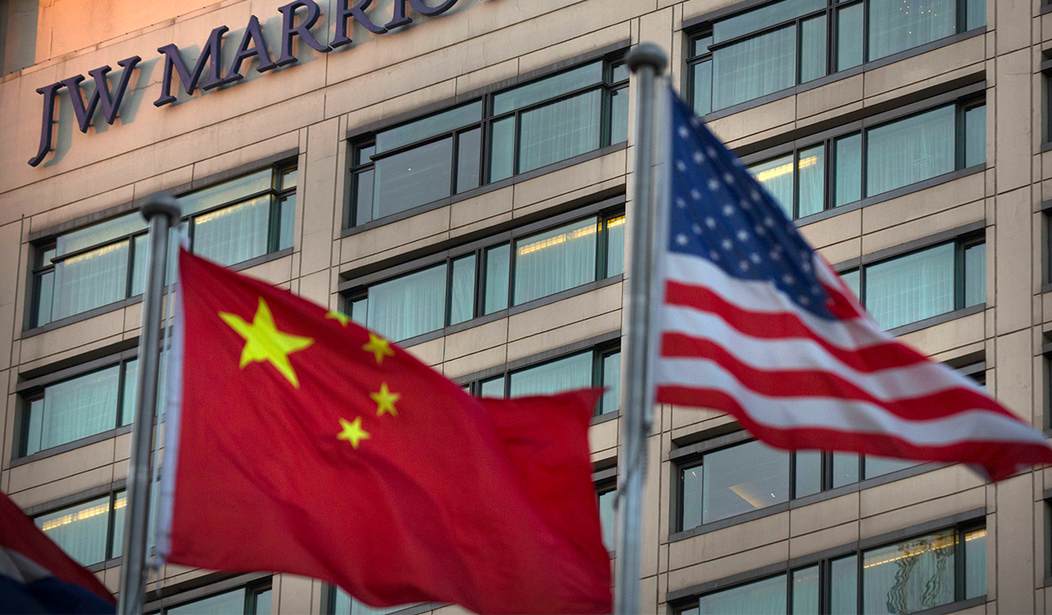Diplomats are trained to see the world with eyes wide-open. Many are also conditioned to have a “can-do” persona, where cooperation is prioritized and conflict is minimized to the greatest extent possible. But even Chinese Foreign Minister Wang Yi can’t ignore the extremely tenuous state of U.S.-China relations.
Speaking to a think tank forum on July 9, Wang didn’t mince any words. "China-US relations, one of the most consequential bilateral relationships in the world, is faced with the most severe challenge since the establishment of diplomatic ties,” the senior member of the Politburo said. "Will the giant ship of China-US relations be able to stay on the right course in the future after more than four decades of voyage?”
This is not a theoretical question. The U.S. and China are traveling on the precipice of a cliff—and it is up to responsible policymakers in both Washington and Beijing to turn around before both fall over. A course correction could not come soon enough.
In a setting with U.S. and Chinese diplomats taking swipes at one another, dueling military exercises in the South China Sea, incessant jousting at the United Nations and tit-for-tat visa restrictions, middle-powers simply don’t know how to protect themselves from the competition. Nations including the UK, Australia, Germany, and South Korea are now placed in the unenviable position of choosing sides—a choice none of these powers want to make for their own economic and geopolitical reasons.
The U.S. and China were already in the midst of an intense adversarial relationship in multiple spheres before the coronavirus became a worldwide issue. Since then, relations have gone in an alarming direction.
The U.S. revoked the visas of select Chinese Communist Party officials and their family members due to Beijing’s crackdown on dissent in Hong Kong and Tibet, predictably resulting in retaliatory visa restrictions from the Chinese. Washington is now levying economic sanctions against China far more liberally than it did in the past; on July 9, the U.S. Treasury Department announced banking restrictions on three senior CCP officials allegedly responsible for the persecution of ethnic minorities in the Xinjiang region. Beijing responded days later with proportional sanctions against three U.S. lawmakers.
As one might expect, the combative nature of the U.S.-China relationship is bleeding down to ordinary people. American and Chinese citizens who once viewed each other as potential economic partners now look at one another with skepticism. Only 26% of Americans have a favorable view of China. In 2019, nearly 58% of Chinese surveyed by the Eurasia Group Foundation had a positive outlook of the U.S. This year, that number is less than 37%.
It is difficult to envision how Washington and Beijing can get themselves out of this rut. A total transformation of the U.S.-China relationship is highly unlikely. China is in part doing what rising powers have done throughout history: converting its significant wealth (China’s GDP has increased by a factor of twelve since 2000) into geopolitical influence and doing what it can to ensure its immediate region is hospitable to Chinese national interests. No amount of Freedom of Navigation Operations by the U.S. Navy is likely to change China’s foreign policy ambitions.
Washington and Beijing, then, have no choice but to manage their considerable differences and insulate those policy areas (counterterrorism, pandemic response and maintaining fair and prosperous commercial ties) where cooperation does in fact exist. This is why open lines of communication at the working and senior levels of the policy hierarchy are so valuable. Secretary of State Mike Pompeo’s meeting with State Councilor Wang Jiechi in Hawaii last June may not have produced deliverables, let alone a signed agreement. But engagements like this at least give both powers the opportunity to express their grievances to each other in a clear way and be somewhat confident that miscommunications do not spiral out of control. This is no small achievement when the relationship itself is undergoing such stress.
Ultimately, it takes two to tango. Prospects of a more amicable future will require good-faith action from both Washington and Beijing. The atmosphere has deteriorated to such a low that neither the U.S. nor China believes it is responsible for making a peace offering.
If a thaw is to occur, it will do so slowly. Both nations will have to jump together to break free of the Cold War paradigm. They could begin by ceasing their visa war, redoubling attention on making the Phase 1 trade agreement signed earlier this year a success and coming to an understanding that rabid language in the public sphere is not helpful. The U.S. military and the People’s Liberation Army should also establish some kind of military-to-military communication channel other than the Crisis Deconfliction and Communication Framework, which is normally reserved for emergencies. The U.S.-China Diplomatic and Security Dialogue, dormant since the latter half of 2018, must be sprung back to life.
None of this will be easy. But these small measures are critical if two nations that control approximately 40% of the world’s wealth wish to prevent the full degradation of their relationship.
Nobody wins in a hypothetical U.S.-China cold war. It is time for policymakers on both sides to start acting with cooler heads.
###
Daniel R. DePetris is a fellow at Defense Priorities and a columnist for the Washington Examiner.

























Join the conversation as a VIP Member